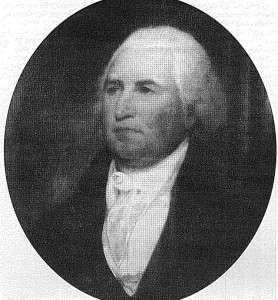Connecticut physician Edward Bancroft had friends in high places. He was a former student and classmate of Connecticut’s Silas Deane, as well as a confidante of Benjamin Franklin’s.
But he also had a powerful enemy in Virginian Arthur Lee, who cared nothing for Bancroft. Lee disliked Bancroft’s using his insider knowledge to profit on stocks during the American Revolution. He disliked Bancroft having a mistress. And, most importantly, he believed Bancroft spied for the British.
Edward Bancroft
Edward Bancroft was born in Westfield, Mass., on Jan. 20, 1745. His father died when he was two, and his mother remarried David Bull. Bull was from Connecticut, and the family relocated there. Bancroft studied under Silas Deane, and then apprenticed to a physician in Killingworth. He then moved to London as a man of letters.
When the American Revolution broke out, Franklin and Deane negotiated with the French, hoping to draw them into the war on their side. Bancroft served as their secretary. His unique position gave him access to the inner workings of the American delegation in France and easy access to Britain, where he could travel freely.
In a letter to Benjamin Franklin in a February, 1779 Lee protested Franklin’s continued reliance on Bancroft.
Lee had long believed Bancroft was acting as a spy for the British, having friends in England who told him so. The Virginia doctor did not hesitate to say so. He had reported to the continental Congress’ Committee on Correspondence in April of 1778 that he suspected Bancroft was supplying information to the British and he repeated the charge to Franklin.
“I have farther to inform you as one of your Colleagues, that I have evidence in my possession, which makes me consider Dr. Bancroft as a Criminal with regard to the United States, and that I shall have him charged as such, whenever he goes within their jurisdiction.”
Ben Gets It Wrong
Franklin, who had used Bancroft to gather information in England as a spy for the American cause, refused to believe that Bancroft was a double agent. Franklin was wrong.
Edward Bancroft had been recruited by the British Secret Service in 1776 for a sum of 200 pounds per year, later elevated to 500. And throughout negotiations with the French, Bancroft provided his British handlers with copies of documents containing directions from Congress to Franklin and the negotiators dealing with the French.
Hundreds of documents made their way into British hands over the course of several years. Bancroft also routinely gave face-to-face briefings to British officials on his trips to England. Aware that he was suspected of spying, Bancroft helped to point the finger at others to shake off suspicions and at one point the British arranged to have him arrested and charged with giving aid to the American rebels, as part of a smokescreen to preserve his cover.
Revelation
In the end, all the subterfuge worked and it didn’t work. Bancroft was able to continue in his role as spy. But the alliance with France continued. Franklin, in particular, had little fear of spies among the diplomatic ranks. If a person always represented his intentions consistently, Franklin asserted, a spy would do little good, and indeed the alliance with France was created.
As to why Bancroft became paid spy, he explained it in a letter in 1784. He simply wanted to prevent the colonies from leaving England. When approached for help by representatives of the British government, he wrote he had lived there nearly 10 years.
“[I] expected to reside the rest of my Life, in England; and all my views, interests and inclinations were adverse to the independency of the Colonies,” he wrote. Though he had advocated some of their claims, “from a persuasion, of their being founded in Justice.”
He therefore wished that the English government “might be informed, of the Danger of French interference.”
Though he initially volunteered information freely, he would later turn it into a career. Bancroft’s role as a British agent remained a secret throughout his life. It was only revealed in 1890 when papers related to his pension were released to the public.
This story was updated in 2021.


1 comment
[…] during the war against accusations from Arthur Lee ( a nephew of Philip Ludwell III) that Bancroft was a double agent. Only in 1890 would documents be released that confirmed the truth of Lee’s […]
Comments are closed.